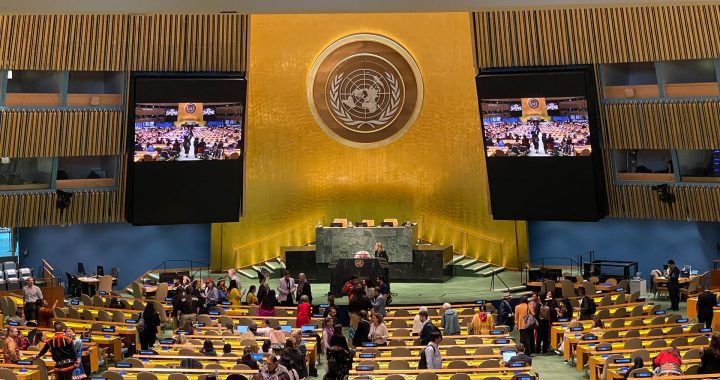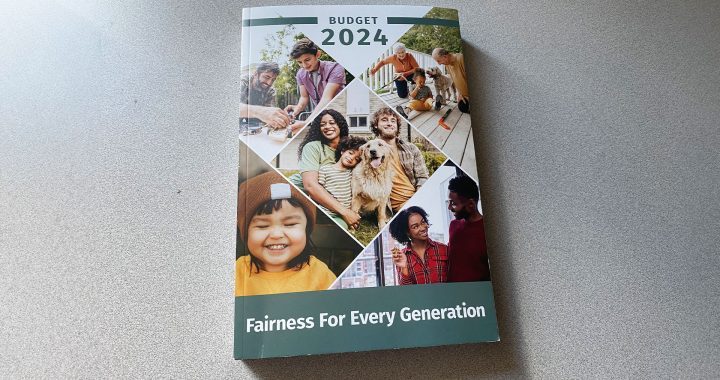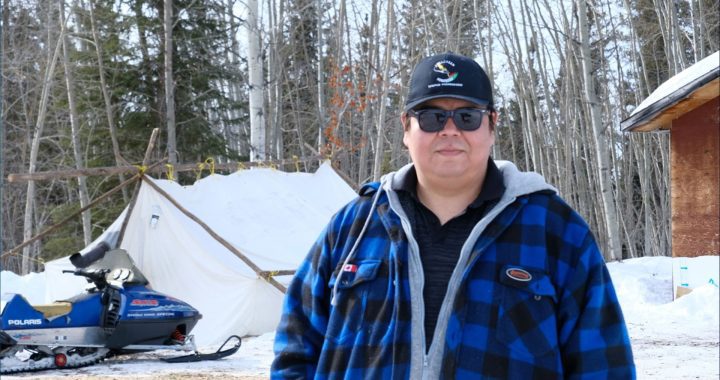APTN National News
Former Aboriginal affairs minister Jim Prentice will be leading Enbridge Inc.’s charm offensive to convince recalcitrant First Nations to support the controversial Northern Gateway Pipeline project.
Enbridge said in a statement Wednesday that Prentice would be leading the energy firm’s “renewed efforts to consult…and establish partnerships with First Nations.
Prentice, who is currently vice-chairman of the CIBC bank, also announced his new role on Twitter.
“I have agreed to help (the Northern Gateway) project because I believe First Nations should be full partners in resource projects,” tweeted Prentice, who was Aboriginal affairs minister from 2006 to 2007. “And they should be owners of projects like the Northern Gateway Pipeline project.”
Enbridge says it has agreements with 26 Aboriginal communities along the pipeline route, which will carry Alberta tar sands bitumen to the British Columbia coast. That number, however, is disputed. Enbridge only has the support of three B.C. First Nations at most and the number it uses relies heavily on Alberta support.
Enbridge CEO Al Monaco said in a statement that Enbridge is committed to “reach out in a respectful way” to First Nations.
“We believe Jim Prentice is uniquely suited to help us fulfill that promise,” said Monaco. “We value the constructive relationships we’ve built with our existing Aboriginal equity partners.”
The pipeline project received a boost from the National Energy Board’s Joint Review Panel which found its economic benefits outweighed its environmental impact.
It is now up to the Harper cabinet to make a final decision on the project. It’s expected that the project will get the federal government’s backing which has described the pipeline as being in the national interest.
The project, however, faces stiff resistance from First Nation bands along the route and from Indigenous grassroots activists.
Art Sterritt, executive director of the Coastal First Nations, said Prentice’s appointment is a sign of desperation on the part of Enbridge and will do little to shift opposition to the pipeline.
“We’ve been dealing with a project that’s been around for eight or nine years and we are in on the last minute of this whose exercise,” said Sterritt. “It’s a last gasp by Enbridge. Enbridge knows it’s in trouble around here.”
Sterritt said the pipeline poses a threat to a $3 billion fisheries and eco-tourism industry that could be wiped out by one oil spill.
“Jobs already exist here. It’s not like we are in some backwater. They come along thinking we should jump if they flash a few dollars,” he said. “We have been sustaining ourselves here for many thousands or years, we are not out there begging anyone to give us a job…The reality is that the vast majority, hundreds of First Nation communities, are against this project.”
The Coastal First Nations represents an alliance of coastal B.C. First Nations including the Wuikinuxv Nation, Heiltsuk, Kitasoo/Xaixais, Nuxalk Nation, Gitga’at, Metlakatla, Old Massett, Skidegate, and the Council of the Haida Nation.
At the grassroots level, the opposition is also fierce.
An anti-pipeline blockade, led by the Unist’ot’en clan who are part of the Wet’suwet’en people, has dug in along the pipeline’s planned route. The blockade aims to stop the pipeline’s construction. The blockade and associated camp is situated about 66 kilometres south of Houston, BC, and about 1,000 km north of Vancouver.
“(Prentice’s) track record has always shown that he has traversed a corporate-heavy trajectory in his role in the federal government. With him being the senior executive vice-president for CIBC we know that his motives have always been prioritized by the financial bottom line,” said the Unist’ot’en camp in a statement. “The banks and the governments are notorious for their disregard for the general public’s opinion as was shown in the recent NEB JRP process with the Enbridge Northern Gateway project. This is also blatantly obvious with their complete disregard for Indigenous Rights and Title issues which are subject to protection in the Constitution Act and the largest majority of Case Laws pertaining to Indigenous matters.”
Prentice, who resigned in 2010 from the Harper government while environment minister, is no stranger to land battles between Ottawa and First Nations. He was Aboriginal affairs minister during Six Nation’s reclamation of an under-construction subdivision in 2006. He also negotiated the creation of the Specific Claims Tribunal with former Assembly of First Nations national chief Phil Fontaine in 2007 to avert nation-wide unrest during a planned day of action scheduled for June 29.
Only the Mohawks of Tyendinaga marched out that day, blocking the railways and Hwy 401 for about 11 hours.










The only jobs created by Enbridge would be clean-up jobs after a tar sands spill into the Douglas Channel. Remember the Kalamazoo.
Tell Jim Prentice to drink the water from the fracking sites, if he believes its good for the people!
A fool’s errand. There is not a chance that Prentice can convince BC First Nations to put their lands and waters at risk of a catastrophic oil spill.
Prentice says, “First Nations should be full partners in resource projects, and they should be owners of projects like the Northern Gateway Pipeline project.” but Enbridge hasn’t offered anything of the sort. Even if it were a matter of money, some Bands (not all) have been offered an equity position that would pay them the equivalent of the cost of a cup of Timmies coffee a day for each Band member for 30 years.